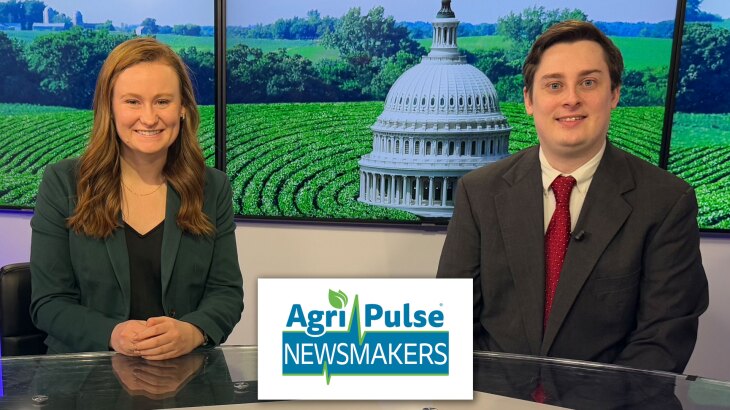Ag Secretary Brooke Rollins visited the Texas A&M Beef Center this week, where she gave a briefing on surveillance and strategies to prevent New World Screwworm in American livestock.
She says tackling the issue is imperative, and the road ahead will be a long one.
“There is no doubt that the potential devastating consequences of not getting this under control, I think, are beyond what many of us can even imagine, because it was really our grandfathers and grandfathers of all of these cattle ranchers that are standing behind me. They are the ones who had the institutional knowledge that knew how to battle this 40, 50, 60 years ago. So we have a whole new generation now of cattle raisers and veterinarians and others that haven’t really had to lean into this in our lifetime. So we’ve got a lot of work to do.”
Buck Wehrbein, president of the National Cattlemen’s Beef Association and a cattle feeder, stressed the importance of keeping international protocols in place.
“I was in Washington last week, and we went to the Mexican Embassy, and in no uncertain and very strenuous terms, impressed upon them the importance of their doing their part. We’re all working on this together. The Panamanians are working on it, they’re working on it, and we’re working on it. The Mexican government did a great job on the border and getting protocols in place where we could start crossing cattle again, which they’re a big part of our program in the United States, and being short on cattle, we need them actually. So, they did a really good job with that, but they need to continue that with, as I said, these planes landing and allowing that process to go. It will work, and we know what to do, they just need to let it happen.”
New World Screwworm has been eradicated in the U.S. since the 1970s.
Dairy farmer and Discover Ag co-host Tara Vander Dussen joined us to discuss the Whole Milk for Healthy Kids Act, her experience at the signing, and what’s next for her family and farm.
January 21, 2026 12:42 PM
·
Analysts say a Supreme Court decision on tariffs could reshape protein markets, strain U.S.-China trade, and force farmers to rethink global demand strategies.
January 21, 2026 12:03 PM
·
Alan Bjerga with the National Milk Producers Federation joined us to review new policies and regulations supporting the dairy industry and what they mean for the year ahead.
January 20, 2026 03:25 PM
·
Despite rising costs and growing food insecurity, meat demand remained strong in 2025 as higher-income consumers offset cutbacks elsewhere. Economists break down the K-shaped economy, upcoming USDA cattle reports, livestock production outlooks, and renewed debate over beef imports and country-of-origin labeling heading into 2026.
January 20, 2026 02:47 PM
·
Livestock strength is carrying the farm economy, while crop margins remain tight and increasingly dependent on risk management and financial discipline.
January 19, 2026 05:00 PM
·
Protein-driven dairy growth is boosting beef supply potential, creating an opening to support rural jobs and ground beef availability.
January 19, 2026 01:00 PM
·
RFD NEWS Correspondent Frank McCaffrey speaks with Texas’s Sen. Ted Cruz and Rep. Vicente Gonzalez about USMCA renegotiation and its impact on U.S.–Mexico agriculture trade.
January 17, 2026 05:00 PM
·
The Midland County Junior Livestock Show in West Texas features a competitive steer showcase highlighting top-quality cattle and the accomplishments of driven youth exhibitors.
January 16, 2026 01:48 PM
·
Texas Commissioner of Agriculture Sid Miller joined us to discuss data center expansion, farmland preservation, rural economic impacts, and imminent cattle biosecurity concerns affecting agriculture today.
January 16, 2026 01:28 PM
·














